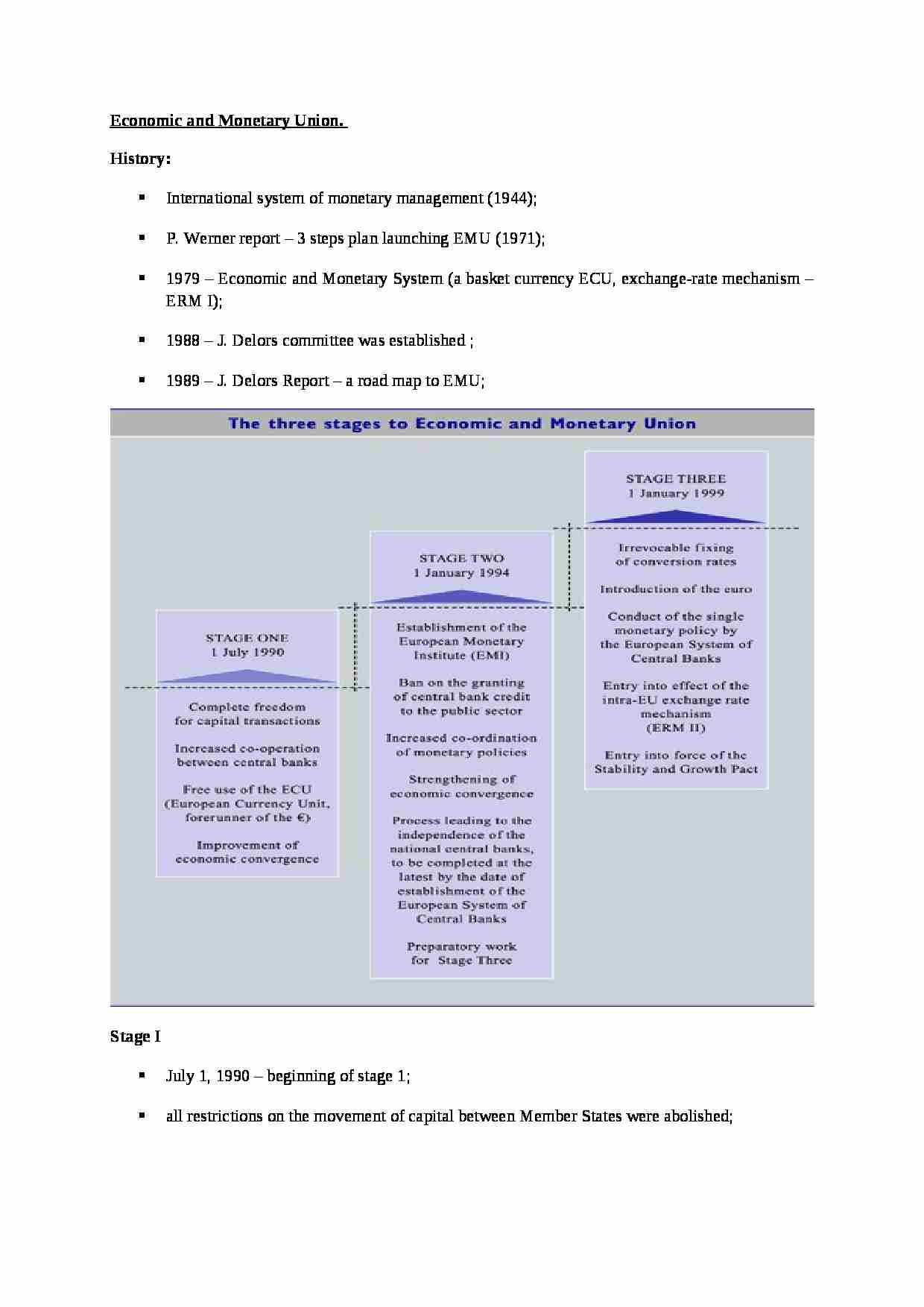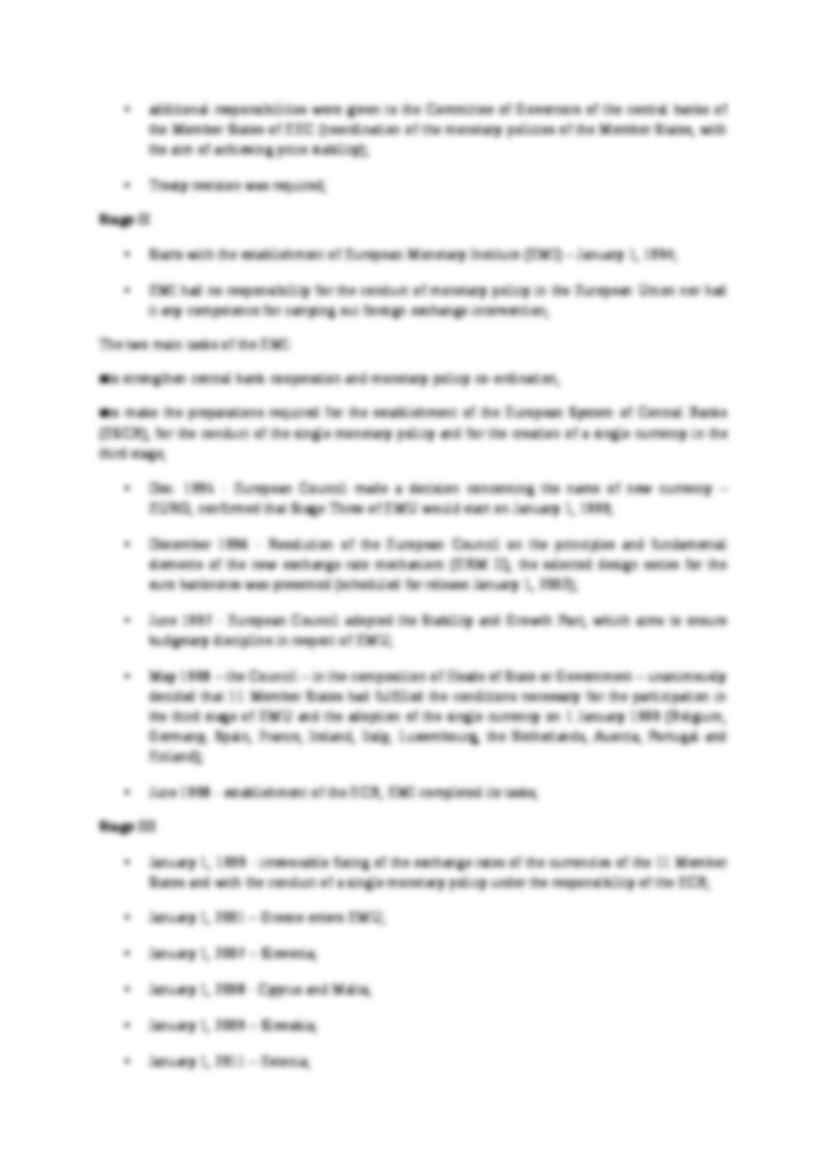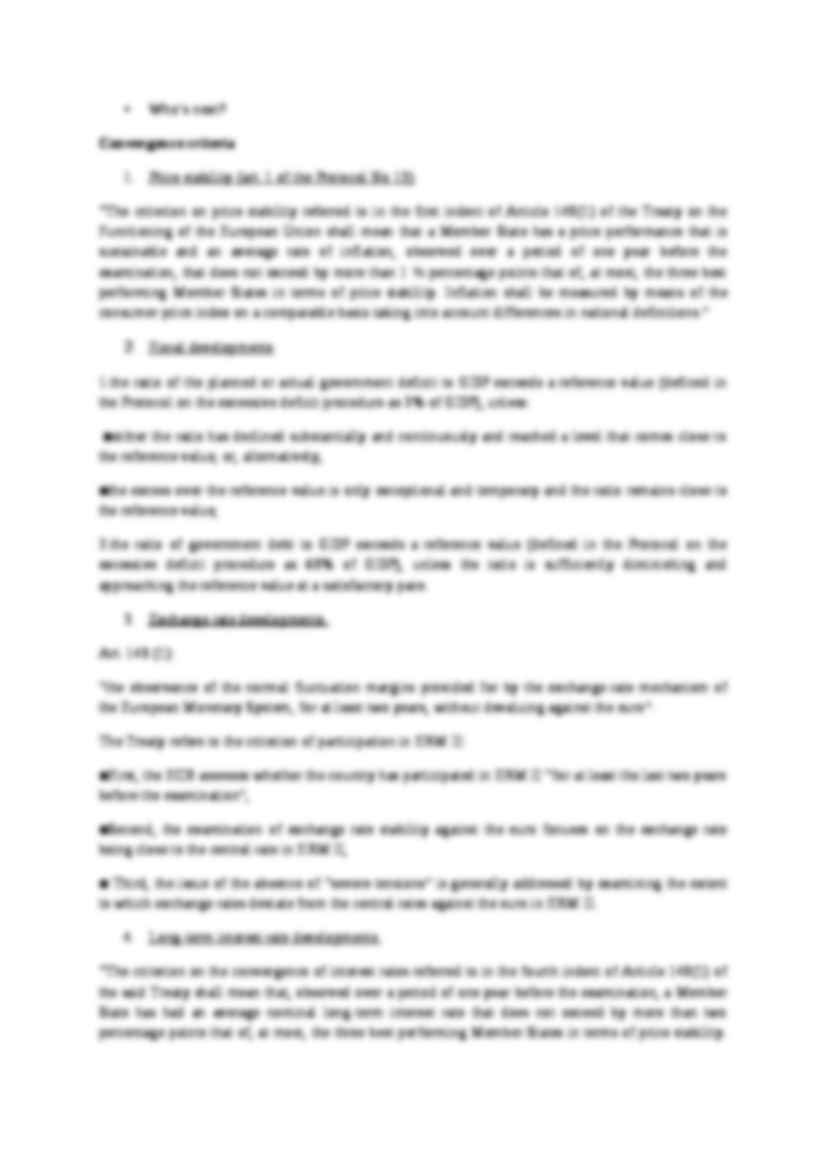To tylko jedna z 4 stron tej notatki. Zaloguj się aby zobaczyć ten dokument.
Zobacz
całą notatkę



Economic and Monetary Union. History:
International system of monetary management (1944);
P. Werner report - 3 steps plan launching EMU (1971);
1979 - Economic and Monetary System (a basket currency ECU, exchange-rate mechanism - ERM I);
1988 - J. Delors committee was established ;
1989 - J. Delors Report - a road map to EMU;
Stage I
July 1, 1990 - beginning of stage 1;
all restrictions on the movement of capital between Member States were abolished;
additional responsibilities were given to the Committee of Governors of the central banks of the Member States of EEC (coordination of the monetary policies of the Member States, with the aim of achieving price stability);
Treaty revision was required;
Stage II
Starts with the establishment of European Monetary Institute (EMI) - January 1, 1994;
EMI had no responsibility for the conduct of monetary policy in the European Union nor had it any competence for carrying out foreign exchange intervention;
The two main tasks of the EMI: ■to strengthen central bank cooperation and monetary policy co-ordination,
■to make the preparations required for the establishment of the European System of Central Banks (ESCB), for the conduct of the single monetary policy and for the creation of a single currency in the third stage;
Dec. 1995 - European Council made a decision concerning the name of new currency - EURO, confirmed that Stage Three of EMU would start on January 1, 1999;
December 1996 - Resolution of the European Council on the principles and fundamental elements of the new exchange rate mechanism (ERM II), the selected design series for the euro banknotes was presented (scheduled for release January 1, 2002); June 1997 - European Council adopted the Stability and Growth Pact, which aims to ensure budgetary discipline in respect of EMU;
May 1998 - the Council - in the composition of Heads of State or Government - unanimously decided that 11 Member States had fulfilled the conditions necessary for the participation in the third stage of EMU and the adoption of the single currency on 1 January 1999 (Belgium, Germany, Spain, France, Ireland, Italy, Luxembourg, the Netherlands, Austria, Portugal and Finland);
June 1998 - establishment of the ECB, EMI completed its tasks; Stage III
January 1, 1999 - irrevocable fixing of the exchange rates of the currencies of the 11 Member States and with the conduct of a single monetary policy under the responsibility of the ECB;
January 1, 2001 - Greece enters EMU;
January 1, 2007 - Slovenia;
January 1, 2008 - Cyprus and Malta;
January 1, 2009 - Slovakia;
(…)
… Union shall mean that a Member State has a price performance that is sustainable and an average rate of inflation, observed over a period of one year before the examination, that does not exceed by more than 1 ½ percentage points that of, at most, the three best performing Member States in terms of price stability. Inflation shall be measured by means of the consumer price index on a comparable basis taking into account differences in national definitions.” Fiscal developments
1.the ratio of the planned or actual government deficit to GDP exceeds a reference value (defined in the Protocol on the excessive deficit procedure as 3% of GDP), unless:
■either the ratio has declined substantially and continuously and reached a level that comes close to the reference value; or, alternatively, ■the excess…
… exchange rate stability against the euro focuses on the exchange rate being close to the central rate in ERM II,
■ Third, the issue of the absence of “severe tensions” is generally addressed by examining the extent to which exchange rates deviate from the central rates against the euro in ERM II. Long-term interest rate developments “The criterion on the convergence of interest rates referred to in the…
... zobacz całą notatkę






Komentarze użytkowników (0)